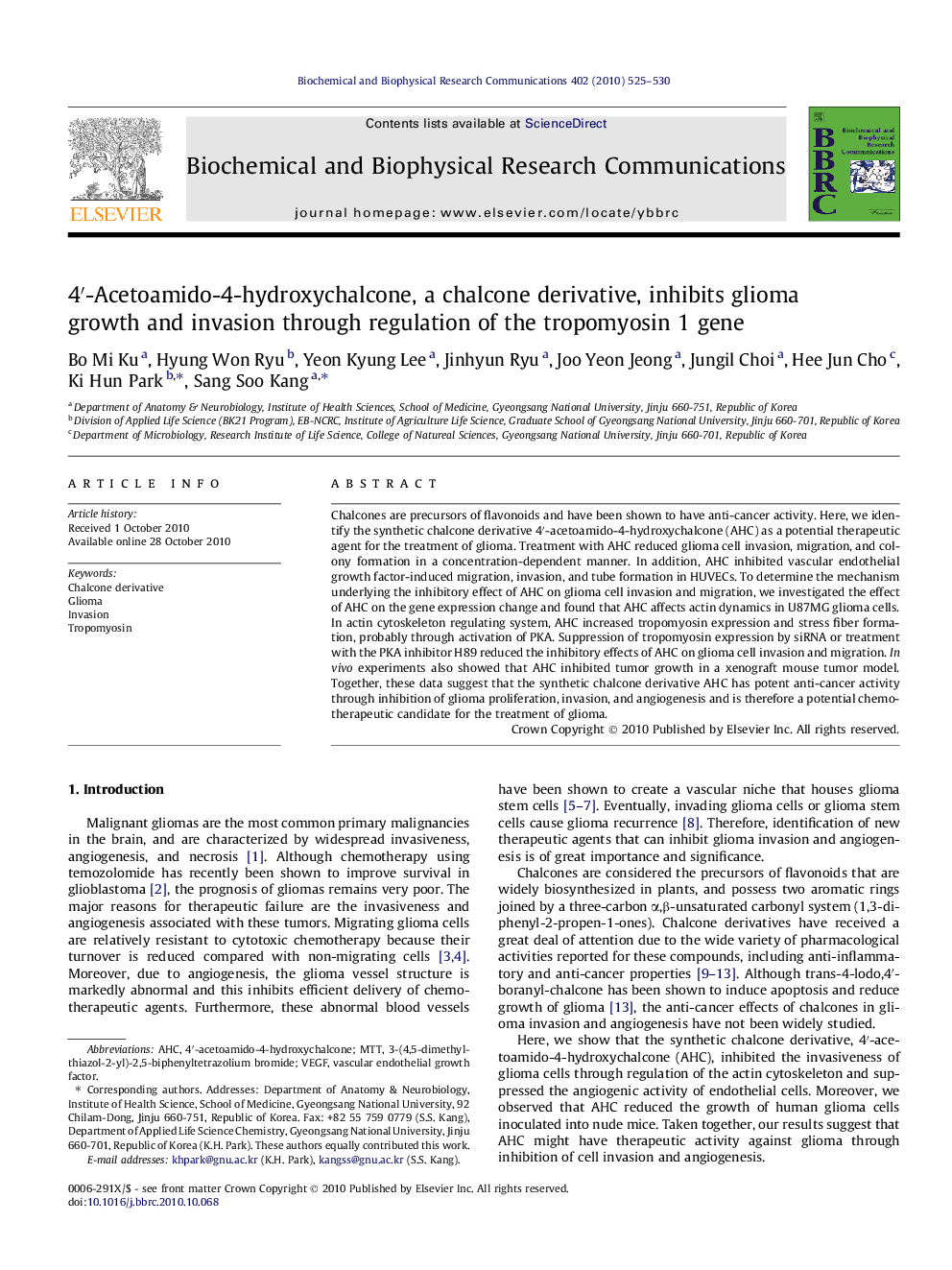| Article ID | Journal | Published Year | Pages | File Type |
|---|---|---|---|---|
| 1931405 | Biochemical and Biophysical Research Communications | 2010 | 6 Pages |
Chalcones are precursors of flavonoids and have been shown to have anti-cancer activity. Here, we identify the synthetic chalcone derivative 4′-acetoamido-4-hydroxychalcone (AHC) as a potential therapeutic agent for the treatment of glioma. Treatment with AHC reduced glioma cell invasion, migration, and colony formation in a concentration-dependent manner. In addition, AHC inhibited vascular endothelial growth factor-induced migration, invasion, and tube formation in HUVECs. To determine the mechanism underlying the inhibitory effect of AHC on glioma cell invasion and migration, we investigated the effect of AHC on the gene expression change and found that AHC affects actin dynamics in U87MG glioma cells. In actin cytoskeleton regulating system, AHC increased tropomyosin expression and stress fiber formation, probably through activation of PKA. Suppression of tropomyosin expression by siRNA or treatment with the PKA inhibitor H89 reduced the inhibitory effects of AHC on glioma cell invasion and migration. In vivo experiments also showed that AHC inhibited tumor growth in a xenograft mouse tumor model. Together, these data suggest that the synthetic chalcone derivative AHC has potent anti-cancer activity through inhibition of glioma proliferation, invasion, and angiogenesis and is therefore a potential chemotherapeutic candidate for the treatment of glioma.
Research highlights► 4′-Acetoamido-4-hydroxychalcone (AHC) has anti-cancer property for glioma. ► 4′-Acetoamido-4-hydroxychalcone (AHC) increased tropomyosin expreesion through activattion of PKA signaling. ► 4′-Acetoamido-4-hydroxychalcone (AHC) inhibits glioma cell migration and invasion. ► In vivo administration of 4′-acetoamido-4-hydroxychalcone (AHC) reduced tumor growth.
